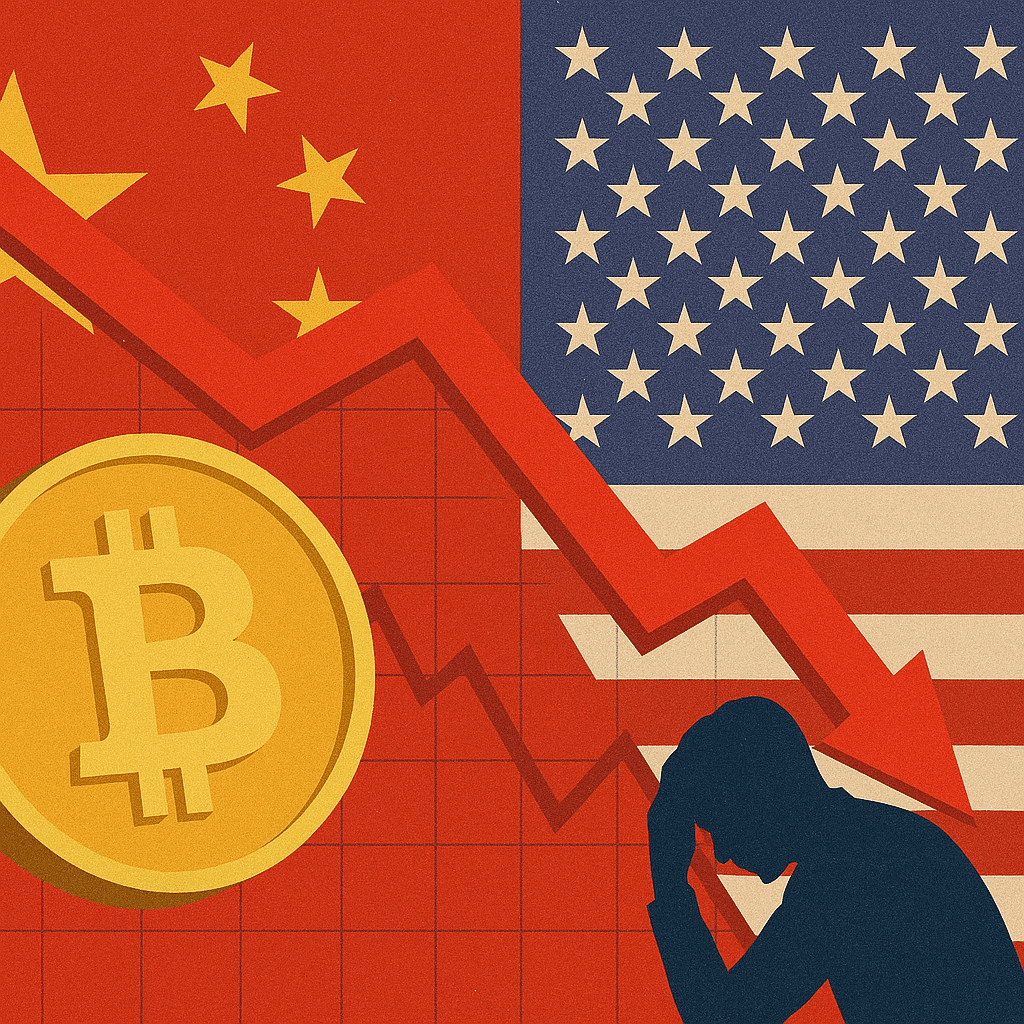
The cryptocurrency sector has recently taken a substantial hit, with a staggering $1 trillion lost in market capitalization following the announcement of new tariffs by the U.S.. This plunge has rattled both traditional and digital markets.
Bitcoin saw its price dip below $80,000, experiencing a decline of over 5% in just 24 hours, landing around $79,000. While this might not seem like a disaster to new investors, it resonates with long-term holders, evoking memories of previous sudden market drops. The catalyst for this decline? Escalating tariff negotiations between the U.S. and China, triggering broader economic concerns that ultimately affected cryptocurrency as well.
In addition, more than $250 million worth of leveraged positions across major exchanges were liquidated as reaction times fell short of the rapid price drops. This has marked the largest liquidation episode since March, underscoring the risks associated with leveraged trading.
Ethereum didn’t escape unscathed; it dropped below $1,600, losing over 14% in value alongside most other altcoins that mirrored this downturn. The correlation with traditional stocks is becoming increasingly apparent, as the general market finds itself in turmoil as well.
Tariff-induced Market Turmoil
The repercussions of these tariffs are not limited to cryptocurrency alone; traditional U.S. stock indices have also been reeling. The S&P 500 fell by over 3%, the Nasdaq lost 4%, and the Dow Jones dropped nearly 1,100 points over the past few days. Internationally, stock indices from Germany to Taiwan experienced severe declines, with the Taiwan TAIEX plummeting by almost 10%. These tariffs raise genuine fears of stunted economic growth globally, and as anxiety mounts, cryptocurrencies like Bitcoin find themselves caught in the same storm.
GLOBAL M2 IS EXPLODING #BITCOIN WILL FOLLOW SOON
ETH WILL BREAK $5,000 🚀 — Max Brown (@MaxBrownBTC) on April 8, 2025
Bitcoin has long been described as “digital gold,” typically viewing it as a safe investment during economic volatility. However, recent trading events are testing this theory as it fails to dissociate from broader market movements. Some market participants argue that Bitcoin’s decentralized nature insulates it from trade-related tariffs. Yet when market anxiety escalates, even digital assets exhibit similar vulnerabilities as traditional stocks.
Conclusion
As global tensions persist, volatility in cryptocurrency markets is likely to continue. Whether you’re an investor holding digital assets or merely observing, preparing for upcoming fluctuations is wise as the markets navigate these challenging waters.
Key Insights:
- The global crypto market cap has contracted by $1 trillion following Trump’s tariffs on April 2.
- Bitcoin’s value has slipped below $80,000, while Ethereum has fallen under $1,600.
- Significant market declines have also impacted traditional stock indices significantly.



